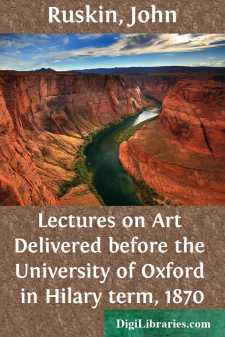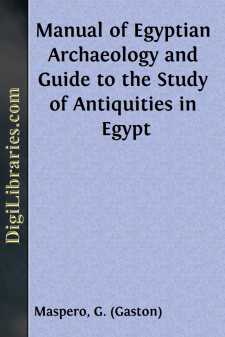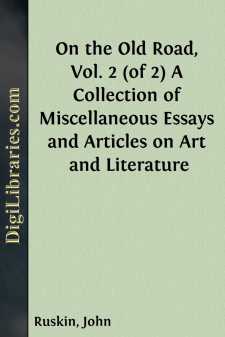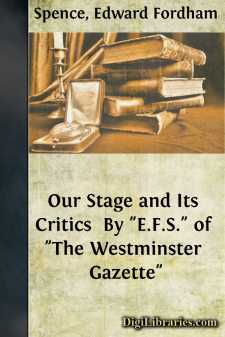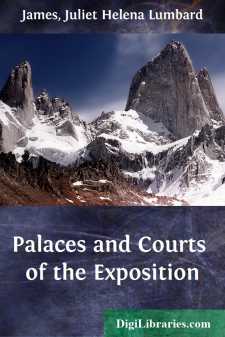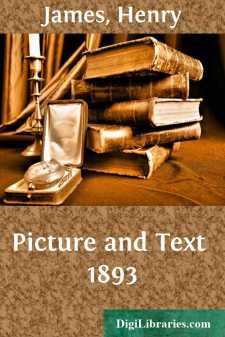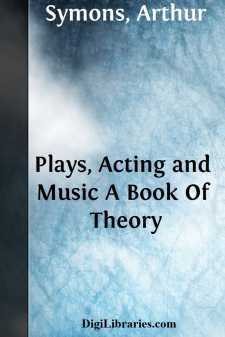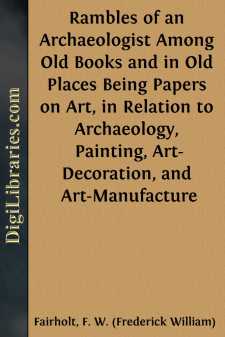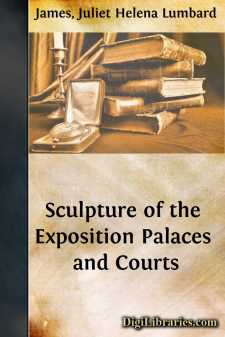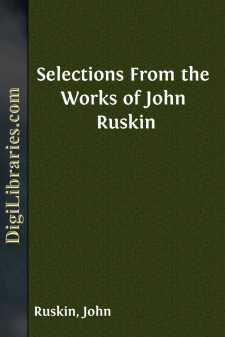Art
- African 1
- Asian 2
- Collecting 1
- Collections, Catalogs, Exhibitions 6
- Criticism 2
- European 8
- General 14
- History 11
- Middle Eastern 1
- Sculpture 4
Art Books
Sort by:
by:
John Ruskin
PREFACE TO THE EDITION OF 1887. The following lectures were the most important piece of my literary work done with unabated power, best motive, and happiest concurrence of circumstance. They were written and delivered while my mother yet lived, and had vividest sympathy in all I was attempting;—while also my friends put unbroken trust in me, and the course of study I had followed seemed to fit me for...
more...
CHAPTER I. ARCHITECTURE--CIVIL AND MILITARY. Archaeologists, when visiting Egypt, have so concentrated their attention upon temples and tombs, that not one has devoted himself to a careful examination of the existing remains of private dwellings and military buildings. Few countries, nevertheless, have preserved so many relics of their ancient civil architecture. Setting aside towns of Roman or...
more...
by:
John Ruskin
THE NATIONAL GALLERY SITE COMMISSION. Evidence of John Ruskin, Monday, April 6, 1857. 114. Chairman. Has your attention been turned to the desirableness of uniting sculpture with painting under the same roof?—Yes. What is your opinion on the subject?—I think it almost essential that they should be united, if a National Gallery is to be of service in teaching the course of art. Sculpture of all...
more...
CHAPTER I THE DRAMATIC CRITIC His Qualifications The production of a play in the Russian tongue renders topical a phrase once used, not unhappily, by Mr Cecil Raleigh concerning the qualifications of the dramatic critic. After listening to a somewhat extravagant speech about the duties of the critic, he said that the dramatic critic ought, apparently, to be a "polyglot archangel." During the...
more...
There is a hill-crowned city by a silver sea, near a Golden Gate. For ages the water has washed from an almost land-locked bay against this hill-crowned city, and on its northern side has created of the shore an amphitheatre stretching for some three miles to the western headlands. Behind this amphitheatre rises, in terraces, the steep hills of this water-lashed city, and in part, a forest of pines...
more...
by:
Henry James
BLACK AND WHITE If there be nothing new under the sun there are some things a good deal less old than others. The illustration of books, and even more of magazines, may be said to have been born in our time, so far as variety and abundance are the signs of it; or born, at any rate, the comprehensive, ingenious, sympathetic spirit in which we conceive and practise it. If the centuries are ever arraigned...
more...
by:
Arthur Symons
INTRODUCTION[2][3] After seeing a ballet, a farce, and the fragment of an opera performed by the marionettes at the Costanzi Theatre in Rome, I am inclined to ask myself why we require the intervention of any less perfect medium between the meaning of a piece, as the author conceived it, and that other meaning which it derives from our reception of it. The living actor, even when he condescends to...
more...
CHAPTER I. Long after the extinction of the practical art-power evolved from the master-minds of Greece and Rome, though rudely shattered by the northern tribes, it failed not to enforce from them an admission of its grandeur. Loving, as all rude nations do, so much of art as goes to the adornment of life, they also felt that there was a still higher aim in the enlarged spirit of classic invention. It...
more...
Sculpture of the Exposition Palaces and Courts "The influence of sculpture is far reaching. The mind that loves this art and understands its language will more and more insist on a certain order and decorum in visual life. It opens an avenue for the expression of aesthetic enjoyment somewhere between poetry and music and akin to drama. - Arthur Hoeber The Fountain of Energy A. Stirling Calder,...
more...
by:
John Ruskin
Introduction Two conflicting tendencies in Ruskin. It is distinctive of the nineteenth century that in its passion for criticising everything in heaven and earth it by no means spared to criticise itself. Alike in Carlyle's fulminations against its insincerity, in Arnold's nice ridicule of Philistinism, and in Ruskin's repudiation of everything modern, we detect that fine dissatisfaction...
more...


